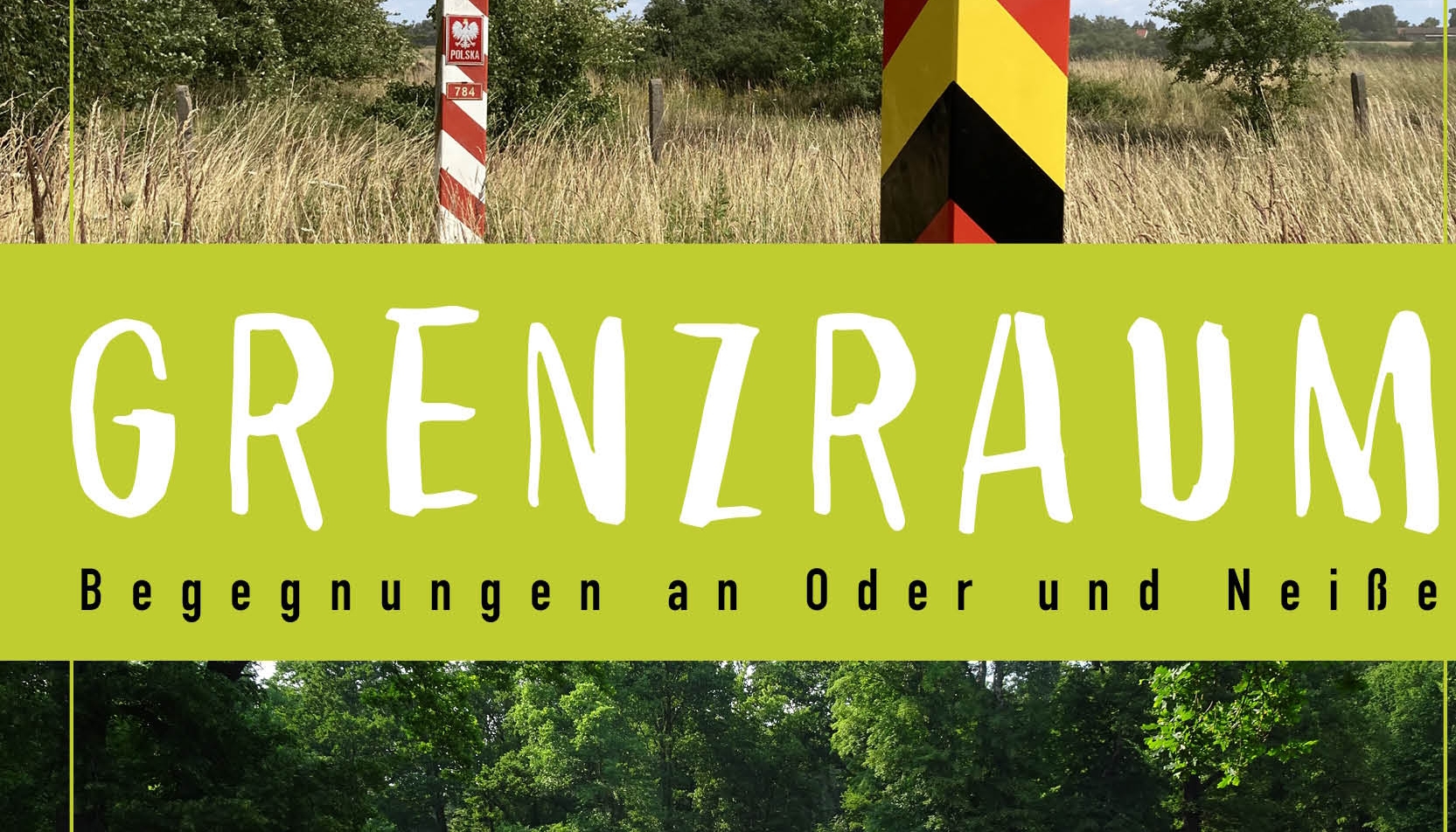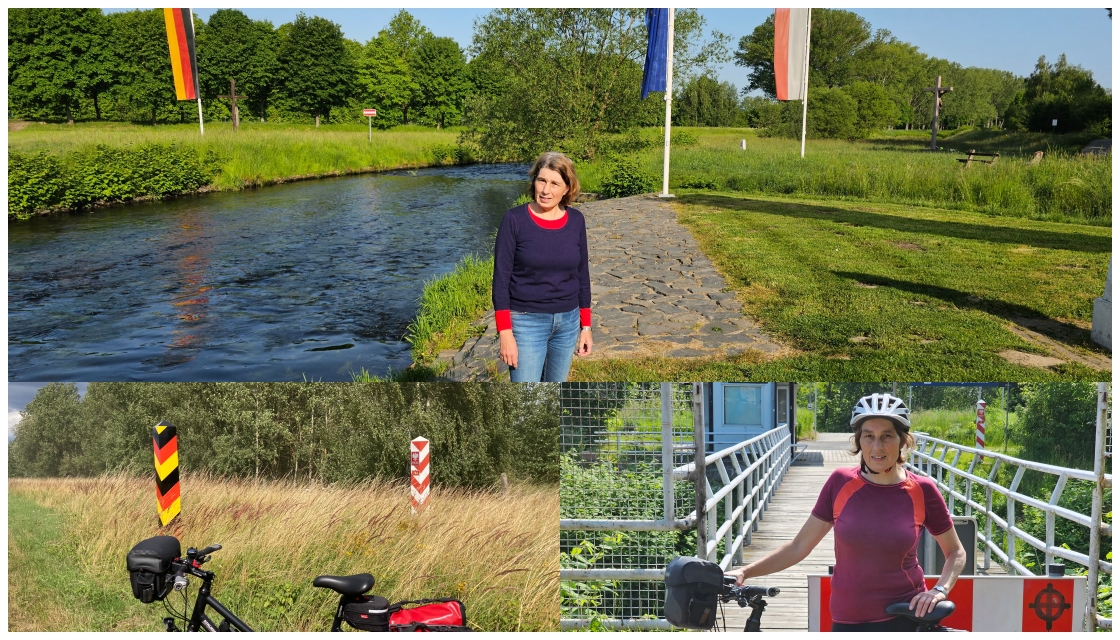tourism
"Border Space" - a book about us here
- tourism
- Hits: 890

Encounters on the Oder and Neisse. The author Beatrix Flatt spent a summer cycling along the Oder and Neisse rivers with great curiosity, empathy and openness. She met people who live, work and are committed to growing together on both sides of the 468 kilometer long German-Polish border. Her book “ Border Area Encounters on the Oder and Neisse ” bears witness to this.
Beatrix Flatt met Lusatian people who nurture their cross-border neighborhood and fill it with life. The result are inspiring reports from a region in which, as she says, “thinking in terms of nation states is becoming increasingly unimportant despite linguistic and cultural differences.” Rather, a border space with its very own border identity is gradually developing.
No matter what the current state of relations between the governments in Berlin and Warsaw is, cross-border ties are becoming ever closer. With vision and persistence, bridges can be built, economic, administrative and cultural hurdles can be broken down and neighbors can become friends. This is what the stories in this book tell us. Reason for us at the Unbezahlbarland blog to ask the author for an interview.

Beatrix Flatt on her bike research trip along the Oder
Hello, Ms. Flatt, you are the author of the book “Border Area – Encounters on the Oder and Neisse”. What motivated you to choose the Oder-Neisse border as the subject of your book? Was there a specific event or experience that triggered it?
Beatrix Flatt: I have lived in Helmstedt for over 30 years, right on the former inner-German border on what is now the Green Belt. When I came to this region from Bavaria, most of the border facilities had been dismantled and the old connecting roads between Lower Saxony and Saxony-Anhalt had already reopened. But the column path along the former border with a length of almost 1,400 kilometers is still partially preserved. 30 years after the border opened, on the anniversary of the 30th anniversary of the Green Belt, I set out to hike this Green Belt, the former inner-German border, on foot. As a freelance journalist, it was clear to me that I didn't just hike, but also talk to people who live, work and get involved there. The book “Boundless – Encounters on the Green Belt” was created. And so I discovered boundaries as seams that can not only separate, but create connections. This research aroused my interest in borders and I looked into the history of the Oder-Neisse border and researched on site what it means for people today to live in this border area.
During your journey along the German-Polish border you met many people. Is there an encounter that particularly moved you or left a lasting impression on you?
Beatrix Flatt: I know this question and it's difficult for me to answer, because what's fascinating to me is actually the variety of topics and the different challenges that people in this region overcome.
In your book you talk about a “border identity” that is developing in the region. How would you define this border identity and what do you think makes it so unique?
Beatrix Flatt: The term border identity did not come from me, but Dana Jesswein used it. In my book I quote her as follows: “The borders are fading and it is becoming less and less important whether you live in Poland or Germany, whether you have Polish or German citizenship.”
You mention that thinking in terms of nation states is becoming increasingly less important. How do you see the role of the EU or other supranational organizations in this process of growing together?
Beatrix Flatt: Poland has been a member of the European Union since 2004 and a member of the Schengen area since 2007. This means people and goods can move freely. This is the prerequisite for cross-border cooperation in economic, social and cultural terms. Possibilities and opportunities to meet and exchange ideas easily across borders are the prerequisite for friendships to develop across borders. People tend to settle where they have the most opportunities. The four cross-border Euroregions that exist along the German-Polish border have already made a major contribution and provided important impetus. Global challenges such as climate change, migration, security, terrorism or pandemics cannot be solved at the national level. However, it is important to create structures so that people can meet each other easily. Where people meet, make friends and share similar value systems, national origin becomes less and less important.
How have the cultural differences between Germany and Poland shaped life in this border region? Do you see challenges or opportunities in these differences?
Beatrix Flatt: First of all, it is important that everyone knows the other person's story at least the basics so that they can meet each other with understanding and on an equal footing. We travel to other countries to get to know other cultures. Here on the German-Polish border, cultures meet and mix. That's an enrichment. But that requires openness and curiosity. And it's also important not to judge the other person. If you are willing to get to know the other person, challenges become opportunities.
What do you hope for the future of this region? What developments would you like to see, and what role could your book play in promoting this awareness?
Beatrix Flatt: I would like people on both sides of the rivers to meet each other even more, for people on both sides to learn or at least understand the neighboring language, and for it to be a given that children and young people attend kindergartens and schools regardless of national borders can. I hope that Poland and Germany will look together at the eventful history of this region. The book introduces people who see themselves as bridge builders in the German-Polish border area as a prerequisite for a strong Europe. One interviewee put it this way: “Europe has to work at the interfaces, otherwise Europe won’t work.”
Thank you for the conversation!
If you're interested in reading the book now, it's best to go to your nearest bookstore or order it directly from the publisher here .
And anyone who would like to support a German-Polish or German-Czech project can do so here cross-border Interreg program Take a look and contact us about possible applications

